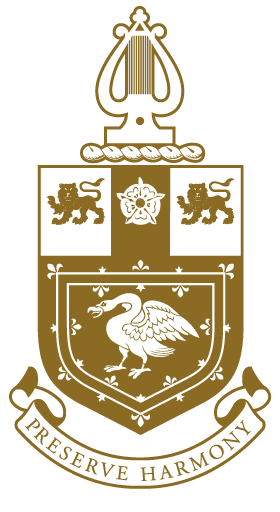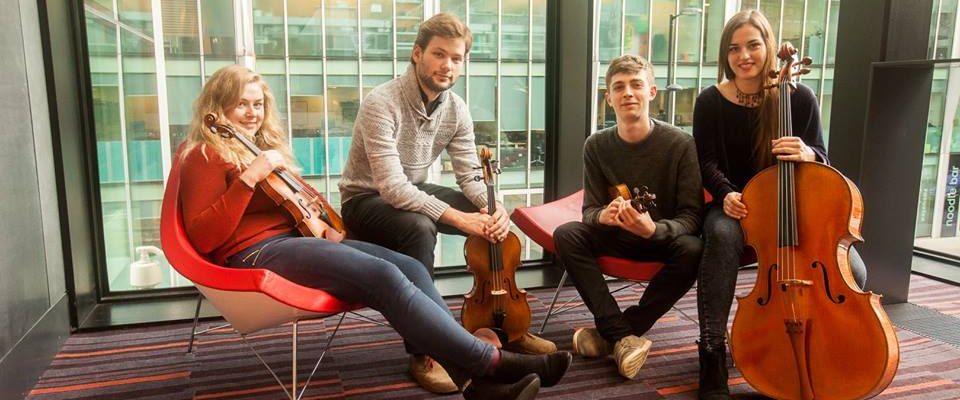Young Artist Interview: Dinara Klinton
It’s 1990. My mother, a piano teacher at a public music school, watches the state news showing an 8-year-old girl playing Chopin’s Fantasie Impromtu in Vatican in front of the Pope. “That must be a student of the Central Music School in Moscow,” she thinks. The titles, however, say Kharkov Special Secondary Music School.
My hometown in north-eastern Ukraine, 300 miles east from Kiev and 450 south from Moscow, had not only been a huge industrial and educational centre of the USSR, but it also had a great music tradition. This huge impact was the result of Regina Horowitz, sister of Vladimir, who taught in Kharkov for over a quarter of a century and established a strong piano school.
At home, I had an upright piano; the same one my mum learnt on when she was a child. It wasn’t that she was eager for me to become a musician, but the easiest way to calm me down was to play something to me or put a playpen by the piano and let me entertain myself. By the age of three I was picking up tunes from the TV and finding them on the piano. Keen to keep me engaged and to channel my energy into something positive, my mum, a single parent, organised a trial lesson at Kharkov Special Music School. I remember entering the lesson room and seeing two huge grands. The teacher, Irina Krivonos, turned out to be the one who’d taught the girl my mum had seen playing Chopin on TV, and she said I should come back for lessons. Thanks to the military discipline of my teacher and mother, I was playing Bach’s two-part inventions and Mozart’s Sonata Facile within six months. However, the lessons came at a price. To secure the tuition (which had to be private, as I was too young for pre-school) my mother often had to go away on “shuttle business” to Poland or China, by regional trains or buses, and leave me with my grandmother who lived with us. She and my granddad, who passed away well before I was born, were Tatars, veterans of WWII, which prevented them from having a decent education, health and life in general.
About a year after starting lessons my teacher migrated to the US, and I had two short-term teachers before turning six and being accepted to the pre-school class of Svetlana Zakharova, one of Regina Horowitz’s favourite students. The same year mum took me to watch the Vladimir Krainev Competition for Young Pianists. Neither of us thought that in two years’ time I would be taking part in this three round competition in the 13 and under age group, and would win first prize. Meeting Krainev was a blessing and very much defined my future life. He was one of those very rare artists who really supported young musicians. He gave his laureates concert opportunities, even taking some of us to play double or triple concertos with him and renowned orchestras at prestigious venues.
In 2001 an opportunity to transfer to Central Music School in Moscow came up, which made me very anxious. I loved my school, my teachers and my poor but settled life. However, it was important for me to move on and further grow my musicianship. Central Music School is not only regarded as the top one in former USSR, but as one of the best in the world, as it has trained hundreds of renowned musicians. My first years in Moscow were simply rough. My mother had to move with me to guarantee decent conditions for my sleep and practice and my grandmother, who had been very ill for the last four years, passed away. Not being able to find a teaching job that would give enough money to rent a room, my mother had to work as a cleaner, nurse, babysitter, etc. She sometimes managed to attend my piano lessons, and that was her relief. I was learning so much from my professor, Valery Pyasetsky, that she believed it worth her hard life. Eventually, I won more competition prizes, started playing more frequently and gained a name in Moscow. I graduated with Honours and was listed as “Pride of School”. I then went to study for a Graduate Diploma at the Moscow Conservatory, where I worked with Eliso Virsaladze, one of the most respected living musicians. Just before I entered the Conservatory, I came second in the Busoni Competition in Italy, which gave me quite a few engagements and international recognition.
The decision to come to the UK wasn’t sudden. Back in 2004, when I won third prize in the Eurovision Competition for Young Musicians which was broadcast live across Europe, I was heard by my future RCM professor, Dina Parakhina, and a few months later we met at Denis Matsuev’s festival, where her son, the famous violinist Boris Brovtsyn was playing. Back then, knowing very little about life beyond piano and having a vocabulary of just a hundred words in English, I probably wouldn’t have been ready to move to the UK. But on graduating from the Conservatory in 2012, I felt it would be right for me. It was one of the most important decisions in my life. Living in London helped to reveal my personality, to overcome a number of self-esteem issues and of course had a huge impact on my musicianship. My professor, the Royal College of Music and the Head of Keyboard, Vanessa Latarche, provided an extraordinarily creative environment to make it happen.
I was awarded the coveted ABRSM scholarship to study on the Master of Performance course and was eager to meet the expectations placed by the RCM and start making a name for myself in London. I was doing many auditions and won some important competition prizes. It wasn’t easy to come back to Moscow for the Tchaikovsky Competition in 2015, as I knew everyone was going to judge me and my playing with extra enthusiasm. Surprisingly, I was loved by the captious Moscow audience even more than before and now I am invited to play with the Svetlanov State Orchestra every year. In 2014 I became a City Music Foundation artist, which helped me a lot with performances, PR, marketing and legal advice. In 2016, proud to be selected by the WCOM, I had my Wigmore Debut in a joint recital with Alena Lugovkina and Pavel Timofeyevsky.
For my Artist Diploma at the RCM I was extremely honoured to become the first recipient of the highly prestigious Benjamin Britten Fellowship, launched by the Philip Loubser Foundation. For the fellowship project I chose to record my second album Liszt Etudes d’execution transcendante, which was out in March last year and rated very highly by BBC Music Magazine (5 stars and Monthly Choice), Gramophone, Pianist and many others. My next album will be released this year in May by the National Chopin Institute in Warsaw and will feature Chopin’s Second Sonata, two Polonaises and other smaller works. I’ve also been selected by Sir Andras Schiff for his concert series this season to give recitals in Europe and New York and last year I played the complete Transcendental Etudes on “Progetto Martha Argerich” Festival in Lugano.
It’s already been a long journey for me, and hopefully, many more good things will happen. I’m extremely thankful to my mother, all my teachers, and everyone who has helped me get to this point in my life.
For more information on Dinara, visit:
Website: www.dinaraklinton.com
Liszt: Etudes d’execution transcendante promo: https://www.youtube.com/watch?v=Xav3-HmP1-M
Chopin Competition video: https://www.youtube.com/watch?v=atZOmIUHb98
Me at 8 years old, 1st round of Krainev competition: https://www.youtube.com/watch?v=nuQ4XfSQ4U0
YouTube channel: https://www.youtube.com/user/vzaimno
Facebook: https://www.facebook.com/dinaratrans/
Twitter: https://twitter.com/dinaraklinton





